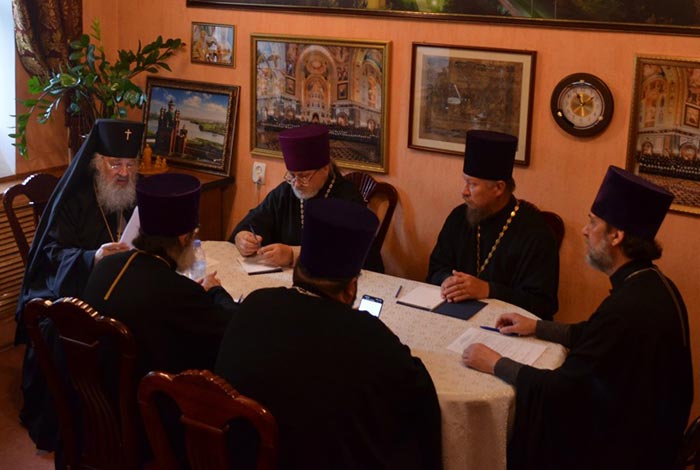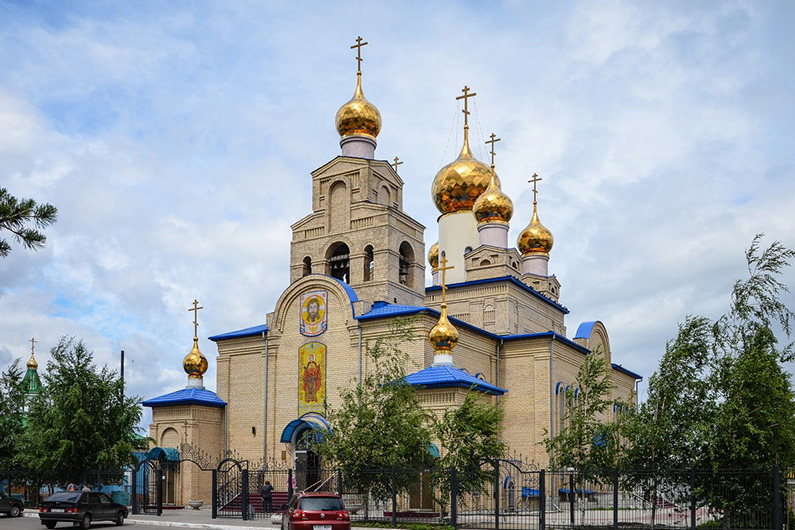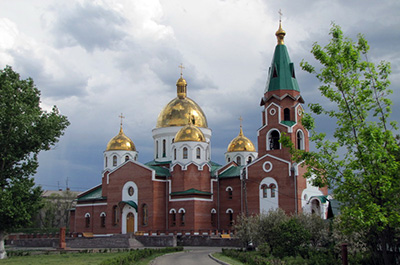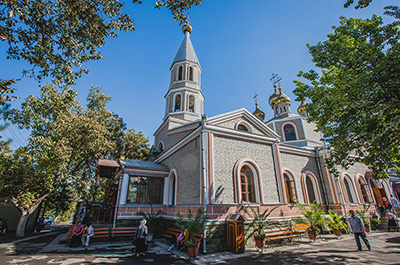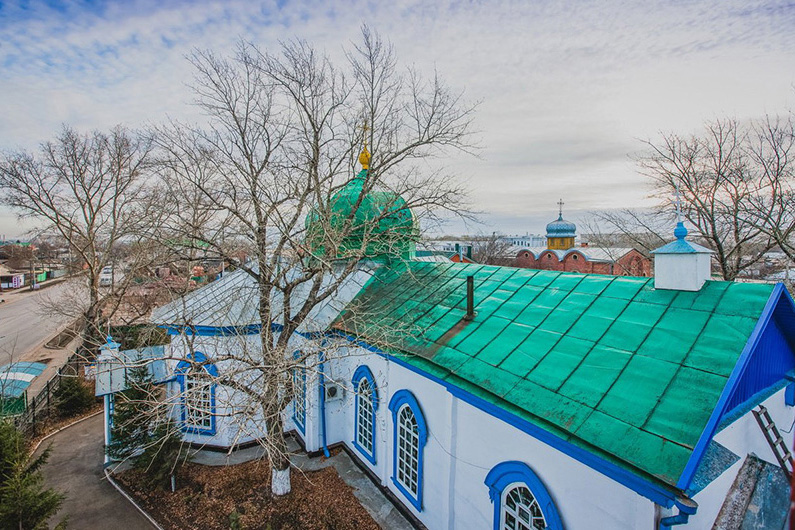
Greetings from Metropolitan Alexander of Astana and Kazakhstan to the organizers and participants of the International Scientific Conference "XXII Alma-Ata Orthodox Educational Readings in Memory of Saint Sophaniah (Sokolsky), Enlightener of the Land of K
- 22.11.2024, 10:51
- Новости на английском языке

Venerable fathers, dear brothers and sisters!
I cordially greet the participants and guests of the International Scientific Conference "XXII Alma-Ata Orthodox Educational Readings in Memory of Saint Sophaniah (Sokolsky), Enlightener of the Land of Kazakhstan".
According to a long-standing tradition, this main scientific and educational event of the Orthodox Church of Kazakhstan, the work of which is carried out under the auspices of the Alma-Ata Orthodox Theological Seminary, is held as a regional stage of the International Christmas Readings. This year, our conference has updated its name. Now it will bear the name of Archbishop Sophonia (Sokolsky), the first archpastor of the Turkestan diocese, the apostle of the Great Steppe, a prominent spiritual educator and ascetic of piety in the 19th century. This decision is connected both with the outstanding significance of his work for the establishment of Orthodoxy in Central Asia, and with the fact that in the coming year of 2025 we will celebrate the 225th anniversary of the birth of Saint Sophonia. Recently, scientific specialists from the Alma-Ata Seminary established the exact date of birth of the ever-memorable hierarch. The found register of births indicates that the future archpastor was born on July 25 (August 7, new style) 1800.
Speaking about the significant dates that mark the coming year for the Orthodox Church of Kazakhstan, it is necessary to recall the 70th anniversary of the death of the holy confessor Nikolai, Metropolitan of Alma-Ata and Kazakhstan and the 50th anniversary of the death of the ascetic of piety, Metropolitan of Alma-Ata and Kazakhstan Joseph (Chernov). We all need to learn moral lessons from the past. The ever-memorable ascetics and righteous men should become an example for us, people living in the 21st century - models of steadfastness in faith, in love for Christ, in strict adherence to the truths of the Holy Gospel, in devotion to native Orthodoxy.
A special celebration of the coming year for the peoples of Kazakhstan, Russia, Belarus and other neighboring countries united by their historical past will be the remembrance of the 80th anniversary of the Victory in the Great Patriotic War. The events that will take place in January as part of the International Christmas Readings in Moscow are united by the common theme of "The 80th Anniversary of the Great Victory: Memory and Spiritual Experience of Generations".
The theme of Victory occupies a special place in our lives and the memory of it is carefully preserved by millions of people of good will. Time flies inexorably forward and every year fewer and fewer living participants and witnesses of those terrible events remain with usб and more and more lies appear about the Second World War. Often you can hear sly calls to reconsider the significance of the feat of our people in the victory over the Nazi plague. We, the descendants and successors of the victors, have the responsibility to preserve and pass on to future generations the truth about the events of that period, to resist persistent attempts to rewrite and distort history. In this regard, the President of Kazakhstan Kassym-Jomart Kemelevich Tokayev noted: "In many countries, the perception of turning points in the past is now becoming an instrument of information and political manipulation. As the Second World War recedes, more and more historical and military myths about it are born. Kazakhstan has always advocated and will advocate for historical truth, preserving the true memory of this most bloody conflict in the history of mankind."
On June 22, 1941, the troops of Nazi Germany treacherously invaded our country. At that tragic moment, the Locum Tenens of the Patriarchal Throne, Metropolitan Sergius (Stragorodsky), addressed a message to his flock, calling on his fellow citizens to resist the aggressor: “The pathetic descendants of the enemies of Orthodox Christianity want to try once again to bring our people to their knees before untruth. With God’s help, this time too, they will scatter the fascist enemy force to dust. Let us remember the holy leaders – Alexander Nevsky, Dmitry Donskoy, who laid down their souls for the people and the Motherland… Our Orthodox Church has always shared the fate of the people. Together with them, it has borne trials and been consoled by their successes. It will not abandon its people now. It blesses the forthcoming national feat with heavenly blessings.” From the very beginning of the war, from the very first day of the tragedy, the Church called on all people, all citizens of the country to work actively to achieve Victory - not only those who fought at the front, but also those who worked in the rear. The patriotic upsurge of the people was invariably accompanied by a spiritual upsurge. For centuries, Orthodoxy gave people spiritual strength, inspired them with the ideals of evangelical holiness. Thanks to faith, people acquired the ability for heroism and self-sacrifice, selflessness and sacrificial love. These noble qualities of the soul were clearly manifested in the defenders of their native land and home front workers during the Great Patriotic War. Solidarity, unity of the people, their return to spiritual roots became the source and solid foundation of Victory. Victory Day is one of the most significant events throughout the entire space of our common historical Motherland. It helps to realize our unity and is a wonderful reason to remember history, analyze the present, of course, think about the future. As His Holiness Patriarch Kirill of Moscow and All Rus' says, “as long as we are able to evaluate ourselves sensibly, we have hope that the lessons of history will be learned correctly, that we will be able to worthily preserve the spiritual and cultural heritage left by our fathers and grandfathers.” No nation can have a future if it does not carefully preserve in its heart the memory of the past, the exploits and deeds of its ancestors. The victory strengthened the bonds of friendship between the nations that fought shoulder to shoulder against Nazism, defending their lives and freedom. And today we need to unite our efforts in order to preserve the great legacy of the victors and pass it on to the younger generation.
One of the goals of our conference is to update the legacy of the Great Victory and the exploits of our righteous predecessors, spiritual teachers and mentors. Each time, discussing certain issues within the framework of meetings and events, we strive to fill them with valuable content, to give a new sound to the topics that are important to us, but most importantly - to achieve progress in solving the problems facing us.
The lessons of the past encourage us to test ourselves for fidelity to the commandments of Christ, to strengthen our souls with pious examples, to work tirelessly in the field of spiritual revival and development of church life, to preach the Word of Christ's Truth to those near and far.
I hope that the XXII Alma-Ata Orthodox Educational Readings will become a notable event in the spiritual life of the Metropolitan District and will contribute to the solution of important problems facing the Orthodox Church of Kazakhstan.
I wish the participants of the Readings successful and fruitful work.



